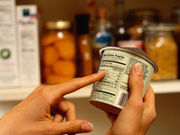Misunderstanding warnings could be dangerous for those with food allergies
WEDNESDAY, Nov. 2, 2016 (HealthDay News) — Shoppers are often confused by food labels that warn of potential allergens, and the consequences can be serious, according to research published online Nov. 1 in the Journal of Allergy and Clinical Immunology: In Practice.
Ruchi Gupta, M.D., M.P.H., a pediatrician at the Ann & Robert H. Lurie Children’s Hospital of Chicago, and colleagues conducted an online survey of 6,684 respondents in the United States and Canada. Those answering the questions either had a food allergy, had someone in the family who did, or they were a parent or caregiver of someone with a food allergy and bought food for that person.
The researchers found that about half (46 percent) of the survey respondents thought precautionary labels are required by law. One-third (37 percent) thought such labels were based on the amounts of an allergen that might be present in a food product. Forty percent of shoppers dealing with food allergies bought products with precautionary labels.
Precautionary labels can state that either a product “may contain” a specific allergen or a food is “manufactured in a facility” that has products containing a specific allergen. The two labels are equally dangerous, Gupta told HealthDay. The amount of allergen required to trigger a reaction varies from person to person, so it’s impossible to know if a product that says “may contain” a specific allergen will prove dangerous or not, she said.
Copyright © 2016 HealthDay. All rights reserved.








